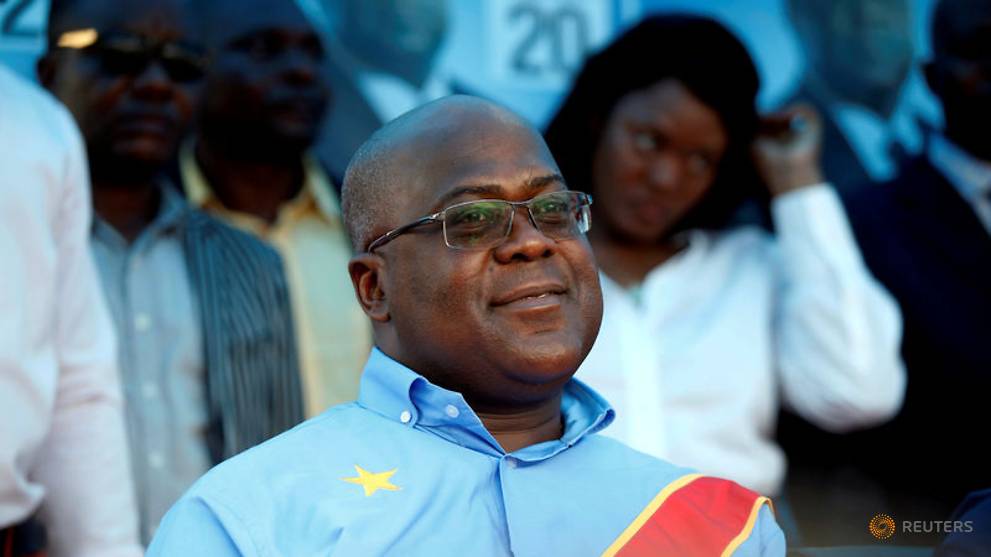DR Congo’s President awaits confirmation of re-election
DR Congo’s incumbent president Felix Tshisekedi is expected to be announced on Sunday as the winner in recent elections that opposition leaders have already dismissed as a “sham”. Partial results released so far leave little doubt that Tshisekedi won the single-round presidential election, and the National Independent Electoral Commission (Ceni) plans to announce provisional totals […]

DR Congo’s incumbent president Felix Tshisekedi
DR Congo’s incumbent president Felix Tshisekedi is expected to be announced on Sunday as the winner in recent elections that opposition leaders have already dismissed as a “sham”.
Partial results released so far leave little doubt that Tshisekedi won the single-round presidential election, and the National Independent Electoral Commission (Ceni) plans to announce provisional totals on Sunday afternoon.
Tshisekedi, 60, has been in power since January 2019 and is running for a second five-year term. By Saturday evening, with 17.8 million votes counted, he was leading with 72 per cent.
Moise Katumbi, a businessman and former governor of Katanga province in the southeast, was second with 18.9 per cent.
Martin Fayulu – who says he was robbed of the last presidential election in 2018 – was next at 5.5 per cent, and former prime minister Adolphe Muzito had 1.36 per cent.
The 20 remaining candidates, including Denis Mukwege, who won a Nobel Peace Prize for his work with female victims of wartime sexual violence, were all under one per cent.
“We will never accept this sham of an election” and “organised fraud”, Fayulu said last week, as police prevented a protest against the results.
Tshisekedi’s vote tally “is way beyond all expectations,” said Tresor Kibangula, a political analyst at the Ebuteli Research Institute.
“His dynamic campaign worked” but his scores in some regions “raise questions about the impact of the irregularities that were observed”.
‘Numerous irregularities’
Some 44 million people out of the 100 million inhabitants of the huge country were registered to vote on December 20 for president, as well as for national and regional lawmakers and municipal councillors.
Initially scheduled for December 20, voting was officially extended by a day to account for problems, and continued for days afterwards in remote areas, according to observers.
One Catholic-Protestant observation mission said it “documented numerous cases of irregularities susceptible to have affected the integrity of the vote”.
About 15 embassies have called for “restraint” in the poor but mineral-rich country where post-election tensions have been common.
Authorities say they have taken steps to prevent unrest, especially in the mining areas of the south-east that are Katumbi’s stronghold.
They also stress that any electoral disputes must be presented to the Constitutional Court, which will announce the final results, expected on January 10.
But opposition leaders say they have no confidence in the court, nor in Ceni, which they argue is subservient to the government.
